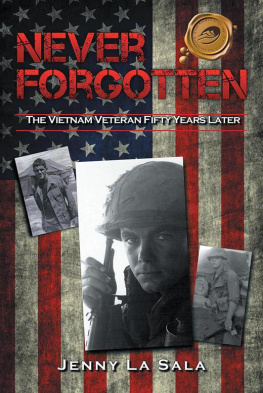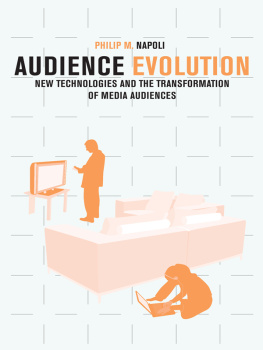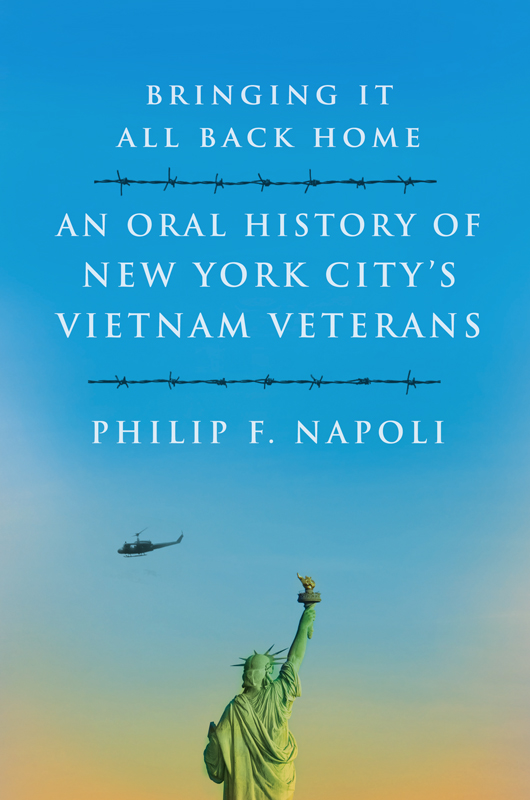
The author and publisher have provided this e-book to you for your personal use only. You may not make this e-book publicly available in any way. Copyright infringement is against the law. If you believe the copy of this e-book you are reading infringes on the authors copyright, please notify the publisher at: us.macmillanusa.com/piracy.
To Marilyn, love of my life
CONTENTS
INTRODUCTION
There is no history of mankind, there is only an indefinite number of histories of all kinds of aspects of human life.
KARL POPPER , The Open Society and Its Enemies , 1945
This book explores the American experience in Vietnam by linking our soldiers early years with their behavior on the battlefield and their progress after the war. It uses oral history to understand how veterans make sense of the most intense period of their lives in light of the knowledge gained in later years.
There are many accounts of the Vietnam veterans experience. In 1997, the World War II fighter pilot and Princeton University literature professor Samuel Hynes published The Soldiers Tale , his personal reflections on the stories men write about war. In one chapter Hynes reviewed the narratives that American veterans have written about their war in Vietnam, highlighting the gap between public discourse and the war the veterans say they really experienced.
The memoirs and novels he studied suggested that the Vietnam conflicts particular myths of war included an emphasis on dead children, on killing, on the bewildering directionlessness of the fighting, and on destruction as a deliberate military policy. Such meaning as does emerge in these works reinforces one idea: the loss of faith in the American ability to fight Good Wars.
This Vietnam myth, Hynes emphasized, worked and was broadly accepted because it provided a narrative structure for the telling of the story of America in Vietnam. This was, according to the title of one oral history, the Bad War. This story, the myth of the veteran that Hynes found embedded in the literature about Vietnam, echoes something the veteran Bernard Edelman once said to me: the assumption was that the war was fucked-up, therefore the veterans must be fucked-up.
In fact, the Vietnam myth articulated in these personal narratives did not match the war fought by the majority of veterans. Hynes noted that as early as 1980 more than 70 percent of Vietnam veterans were reporting to the Veterans Administration that they were proud to have served and 66 percent said they would do it again. The story of their war was, Hynes asserted, as valid, as truth-telling, as valuable, as the worst accounts of slaughtered innocents and damaged lives. The soldiers tale of Vietnam is all of the stories. We must not choose among them.
The only way to present a counternarrative is to listen to a wider range of voices. This work is focused on Vietnam veterans who either grew up or live in New York City, because the citys estimated eighty thousand veterans represent a diverse and inclusive sample of those who went to Vietnam. I have sought to find a balance between those who saw Vietnam as a guilt-inducing series of mistakes and atrocities and those who seem not to suffer from nightmares and disabling wounds. There are stories here of substance abuse and post-traumatic stress disorder (PTSD), but also stories of redemption; stories of grief, but also of service; stories of pain, but also of transcendence.
As these veterans also remind us, their experiences in Vietnam have implications for the lives of those whove fought in Iraq and Afghanistan. Rudy Thomas Sr., who earned three Purple Hearts while serving with the 173rd Airborne Brigade in Vietnam, emphasized the relevance of his war experiences to a new generation of returning soldiers. He said:
For the past twenty-eight, twenty-nine years Ive been a disabled-veterans specialist for the State of New York Department of Labor. I see veterans from Vietnam and I see veterans from Iraq and I understand. I dont like what I see now. I see a lot of young people with problems that theyre not even aware of, just like myself. I had no idea what I was going through.
The veterans I see from Iraq and Afghanistan, they have problems. Theyre not really familiar with whats going on, and I think its my duty to open their eyes and let them see whats happening. I had a young lady two days ago. She was fine, and then I started questioning her. I said, Youve been up all night, right? She said, How do you know that? And I just started laughing.
I am experienced. Ive been there, done that. Im up all night. Sometimes I look up, open up the door, and look out. What the hell am I looking out the door for? Theres nobody at the door. But its something that I do. I look out the window, you know, and I catch myself doing it. What are you doing? Theres nobody out there. But its something that happens. And I see it in a lot of young veterans coming back now.
What they dont understand is the problems that theyre having affect not only them but the family also. The family doesnt understand what theyre going through.
So I tell them a lot of times, Sit down with your family. Talk to them. Tell them whats going on with you so they will understand. Hopefully, they will have a better idea of whats going on in your mind so they wouldnt get the wrong impression from what they see.
Just as Thomas stresses that remembering and sharing can promote understanding between individuals and among family members, Neil Kenny maintains that shared stories create connections across generations. As a Vietnam combat veteran, Kenny reaches out to the younger generation of men and women returning home from combat. He described his relationship with two of these young men. One Marine was struggling down in Charleston, South Carolina. When I met him up here, he said, I want real Italian food. I said, Its a real Italian restaurant. He says, Whats good? I said, Its all good. He said, Ive never had real Italian food. And this kid was in Iraq, fighting for his country.
The second young man, also a Marine from Staten Island, was having trouble with PTSD.
I go to Carmines house, and Im talking to his mother. I said, Where the hell is Carmine? Oh, [she says], hes up in his room.
I [went up to his room and said], You know, Carmine, you cant be staying in your room like this, bro. You got to get out. You got to do something. I said, When you were in that courtyard in Fallujah and you were down because you were hit, and you were defenseless, I said, you didnt really think you were going to get out of that courtyard. He started crying.
He says, Neil, you read me like a fucking book. I said, Im not reading you like a book, my friend. Im only about three chapters ahead of you.
That common experience, the shared sense of what military service and combat can mean, enabled Kenny to reach out to this Marine. He has not finished living the chapters of his own book, but he is willing to share what he has learned.
* * *
All the people profiled in this book understood that their remarks to me were on the record and intended for publication. All were given the opportunity to edit their words, and some did so. Final responsibility for what appears here, of course, rests with me. No pseudonyms appear in this book. Throughout the text, all words spoken to me by my interviewees are presented in italics.
MAKING SOLDIERS: THE BOYS WHO BECAME THE MEN
On December 7, 1941, the attack on Pearl Harbor galvanized public opinion in favor of war. In June 1942, a New York at War parade up Fifth Avenue attracted about 500,000 participants and 2.5 million spectators. The parade was intended, according to The New York Times , to visualize the magnitude and intensity of the citys contribution to all phases of the war program. The Times pointed out that the crowd was larger than in any other single American city with the exception of Chicago, and there were twice as many people along Fifth Avenue as live in Detroit or Los Angeles. For many children of these World War II veterans, their parents military service was a conspicuous point of pride.







